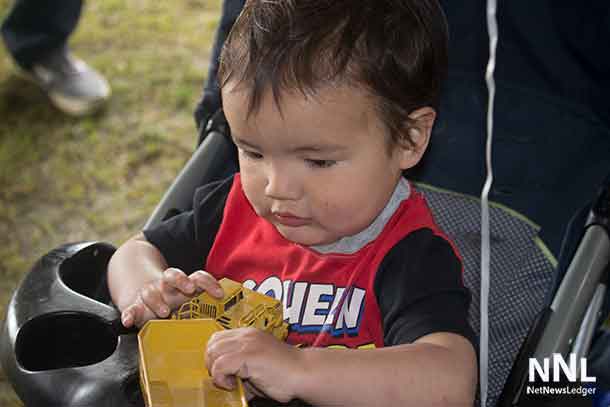
By Jane Thompson
The landscape of work is undergoing a profound transformation, driven by technological advancements, changing demographics, and global events. To gain insights into navigating this evolving landscape, we turn to Alec Lawler, an accomplished entrepreneur and athlete. In this article, we will explore Alec Lawler’s expert perspective on the future of work and the strategies individuals and businesses can employ to adapt to change.
The future of work is a topic of significant interest and concern for individuals and organizations alike. Alec Lawler, drawing from his experience as an entrepreneur, understands the importance of staying ahead of the curve. He states, “The world of work is in a constant state of flux, and the ability to adapt and thrive in this changing environment is paramount.”
Let’s dive more into Alec Lawler’s insights on the future of work and the strategies that can help individuals and businesses embrace change and succeed in the evolving landscape.
Embracing Remote and Flexible Work
One of the most noticeable shifts in the future of work is the rise of remote and flexible work arrangements. Alec Lawler acknowledges this trend and its significance. He says, “The COVID-19 pandemic accelerated the adoption of remote work, and it’s likely here to stay. Embracing remote work can provide businesses with access to a broader talent pool and offer employees flexibility in how and where they work.”
Alec adds, “To succeed in this environment, individuals need strong time management and communication skills. Businesses must invest in technology and policies that support remote collaboration and productivity.”
Lifelong Learning and Skill Development
In a rapidly changing work landscape, the need for lifelong learning and skill development is more critical than ever. Alec Lawler believes in the power of continuous learning. He states, “Individuals must view learning as a lifelong journey. Staying up-to-date with industry trends and acquiring new skills is essential for personal and professional growth.”
He advises, “Employers should foster a culture of learning within their organizations. Encourage employees to pursue training and development opportunities that align with both their individual goals and the needs of the business.”
Remote Leadership and Team Management
As remote and hybrid work models become more prevalent, leadership and team management strategies are evolving. Alec Lawler recognizes the importance of effective remote leadership. He says, “Leading remote teams requires a different skill set. Leaders must focus on clear communication, trust-building, and outcomes rather than mere hours worked.”
Alec adds, “Managers should prioritize regular check-ins, goal setting, and creating a sense of belonging within remote teams. Strong leadership in a virtual environment is vital for team cohesion and productivity.”
Adaptability and Resilience
The future of work is marked by uncertainty, and the ability to adapt and remain resilient is a valuable asset. Alec Lawleremphasizes the importance of adaptability. He states, “Individuals and businesses that can pivot and adjust to changing circumstances are more likely to thrive. Adaptability is a key predictor of success in an unpredictable world.”
He advises, “Foster a growth mindset within your organization, where challenges are viewed as opportunities for learning and growth. Encourage employees to embrace change and be open to new ideas and ways of working.”
Diversity, Equity, and Inclusion
The future of work also places a significant emphasis on diversity, equity, and inclusion (DEI). Alec Lawler believes that DEI is not just a moral imperative but also a strategic advantage. He says, “Diverse teams bring a range of perspectives and experiences to the table, which can lead to innovation and better decision-making.”
Alec adds, “Businesses should actively promote diversity and create inclusive work environments where all employees feel valued and heard. DEI initiatives should be woven into the fabric of the organization, from hiring practices to leadership development.”
Automation and AI Integration
Technological advancements, including automation and artificial intelligence (AI), are reshaping the workforce. Alec Lawler recognizes the impact of automation and AI on jobs. He states, “Automation has the potential to streamline processes and increase efficiency, but it may also lead to job displacement in some sectors.”
He advises, “Individuals should stay informed about how automation and AI are affecting their industries and seek opportunities to upskill in areas that complement these technologies. Businesses should consider reskilling and upskilling programs to prepare their workforce for the future.”
Mental Health and Well-being
The future of workplaces, a renewed focus on mental health and well-being. Alec Lawler acknowledges the importance of employee well-being. He says, “The demands of the modern workplace can take a toll on mental health. Employers must prioritize the well-being of their employees and create supportive work environments.”
Alec adds, “Promote work-life balance, provide resources for mental health support, and reduce the stigma around seeking help. A mentally healthy workforce is more productive and engaged.”
Environmental Sustainability
Sustainability is another aspect of the future of work that is gaining prominence. Alec Lawler believes that businesses should integrate environmental sustainability into their operations. He states, “Sustainability is no longer a choice; it’s an imperative. Businesses should assess their environmental impact and take steps to reduce their carbon footprint.”
He advises, “Implement eco-friendly practices, such as reducing waste, using renewable energy sources, and adopting sustainable supply chain practices. Aligning with environmental sustainability can enhance your brand reputation and appeal to environmentally conscious consumers.”
Conclusion
The future of work is characterized by change, and individuals and businesses that can adapt and thrive in this evolving landscape are poised for success. Alec Lawler’s perspective underscores the importance of embracing remote work, continuous learning, and adaptability. It emphasizes the value of diversity, equity, and inclusion, as well as the integration of automation, AI, and sustainability into the workforce.
In Alec’s own words, “The future of work offers both challenges and opportunities. By proactively addressing these trends and embracing change, individuals and organizations can navigate the evolving landscape and position themselves for a prosperous future.”






